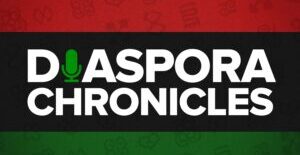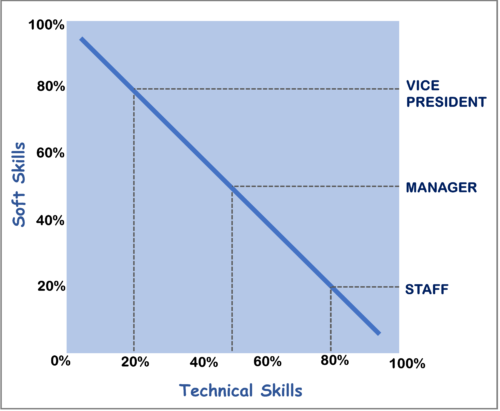“If you were to witness a fraudulent act, will you report in person, report anonymously, or ignore it? 76% indicated that they will report while 24% said they would not”
I remember heading back to the US after a visit to Nigeria in 2008 and thinking it will be nice if I could do something to help solve the issue of corruption in the country (pardon my naivety). In 2011, I was reading an article and came across a new regulation Nigeria’s Security and Exchange Commission developed in response to whistle blowing protection, Security and Exchange Commission Rules and Regulations, 2011.
Section 32.1 reads:
The Board of directors of publicly traded companies have the responsibility to…establish a whistle blowing mechanism for reporting any illegal or substantial unethical behavior.
The whistle blowing mechanism should include a…system that could be used anonymously to report unethical practices.
Reading this regulation gave me the idea to setup an anonymous whistle blowing mechanism for employees to report fraudulent and corrupt behavior at private and public organizations. It is evident that individuals witness unethical behavior all the time, however, the behavior is not communicated because employees are often afraid to report these issues due to the fear of retribution.
At the time, I worked at a company that implemented an anonymous ethics whistle blowing program and I was in charge of reviewing the audit related reports. This is how the process worked:
- We had a third party provider, Ethics Point, which setup a 1800-Hotline as well as an online form, where employees can either call or go online to make reports on unethical behavior. Reports included issues such as fraud, harassment, embezzlement, bribery etc.
- Once the report is completed, the report is routed via email to specific individuals within the company, typically a member of Audit, Legal and HR
- Depending on the nature of the report, one of the individuals on the email chain is responsible for investigating the report. This could be a collaborative investigation between multiple departments.
- If the report is indeed accurate per the investigation, the necessary disciplinary measures are taken, however, if the investigation is unable to determine guilt, the investigation is closed with no action
I spent time researching if there were companies in Nigeria that offered similar services, however I was unable to identify one. As a result, I decided to create an online service that provided this anonymous reporting service where employees could report unethical behavior either on their laptops or their mobile devices. My plan was to use a model very similar to Ethics Point. I called my service Ethics Connection ….very original 😊.
Step one was to conduct some market research. I developed a questionnaire for employees in Nigeria and was able to get a third party go to the streets of Lagos to survey employees in banks, oil companies, government institutions and more. The firm met with over 1,000 workers and asked them the following questions:
- Have you witnessed a fraudulent activity within your organization?
- Did you report or ignore the activity?
- For those who did not report, why not?
- If you were to witness a fraudulent act, will you report in person, report anonymously, or ignore it?
- Describe the fraud climate within your organization
The results of the survey were amazing:
- Have you witnessed a fraudulent activity within your organization? 2 out of 3 individuals indicated yes
- Did you report or ignore the activity? 37% indicated they reported
- For those who did not report, why not? “I didn’t report cos, I‘m scared of being victimized”; “At my former job, I reported fraud and I was later sacked”; “I did not report cos I also do fraud, why report my fellow fraudster, fraud is normal and we love it”; “I am part of the system… if u can’t beat them, then join them, fraud is high especially in the banking sector”
- If you were to witness a fraudulent act, will you report in person, report anonymously, or ignore it? 76% indicated that they will report while 24% said they would not
- Describe the fraud climate within your organization. “Fraud is part of running a Nigerian business”; “Nobody can safely say he or she can eradicate fraud but we can minimize it and that is what matters”; “All aspects of our national life is corrupt, I believe the government should pass into law an act that will force all organizations to have confidential system where financial crimes can be reported confidentially”.
A few takeaways from the survey:
- This issue of fraud and corruption is prevalent
- An anonymous system significantly increases the likelihood of reporting a fraudulent act because it provides anonymity
- Employees are willing to use the anonymous mechanism if it is made available and their identity is kept private
I later sprang into action, designed the website, worked with a developer and six months later, we had the Ethics Connection live website.

The plan was to meet with companies in Nigeria, pitch the solution to board members, legal, audit and HR executives in large companies. I must have sent over 150 emails to individuals I tracked on LinkedIn and other sites. I got only a couple of responses. A Director in the Nigerian SEC mentioned that he liked the idea, however, he would prefer that the employee reports go directly to the SEC. I did not like that approach because I did not believe that any company will sign up for it. Most companies would prefer to deal with their issues internally as opposed to communicate the issues to an external regulatory body such as the SEC.
I was having a discussion with my church Pastor and he indicated that he liked the idea and could send an email to Oby Ezekwesili because he had a relationship with her. Oby was a Former Nigeria Minister of Education and was at that point a Vice President at the World Bank Africa division
He made the introduction via email and I sent a follow up note to Oby, who responded that she liked the idea, however, she was in Brazil but would like to discuss when she got back to the States. After reading the email, I was excited because I figured I got my big break. I started putting my PowerPoint deck together, practicing my presentation skills…even considered buying a new suit.
After a month I sent her an email, but received no response, I believe I sent over five subsequent emails but no response. Please Oby if this newsletter finds itself in your hands. Please remember us o…..
I continued to promote the site because there were real benefits for companies to enroll:
- It was mandated by the SEC to have a whistle blower anonymous program and Ethics Connection would help the companies meet their compliance obligation
- Companies can use the program as a marketing tool to customers demonstrating that they take compliance issues seriously. For example, a bank with the system can market to customers that customers’ funds are safe with them because of a robust fraud management program.
- Implementing the program will make employees think twice before making any unethical decisions, because any of their co-workers can make a report anonymously without their knowledge
As far as how I could monetize the product, below was the initial revenue model:
- Charge companies an annual subscription fee to use the system
- Charge companies for employee training services
- Provide compliance certifications which companies can market to stakeholders
Around this time, my uncle introduced me to the CEO of Credit Registry, a company that provided credit report services to Nigerian citizens similar to TransUnion in the US. The CEO had worked at Microsoft in Seattle for years and decided to move back to Nigeria to start the company. As a result, he was familiar with a whistle blower service.
He liked the product, however he warned that it will be difficult to sell this service in Nigeria because of the culture. He was open to implementing the program in his company, however he had some reservations. His biggest concern was that he believed that the program could be used as a tool to make false accusations or spread rumors in the company.
Instead of the report going directly to Legal, HR or Audit, he preferred that someone be in charge of filtering the message to ensure that it is worth sending to the next level for investigation. I struggled with the suggestion because I had a purist view that one is reliant on one individual who might not have the best intentions to make sure the truth is communicated.
After coming back to the US, things slowed down, I decided to embark on graduate school and slowly the project stalled. Now looking back, I believe I made two key mistakes:
- My market research surveying 1,000 employees was not that effective because employees are not the decision makers. It is really board members and executives I should have surveyed, I would have gained better insights. I should have surveyed 500 employees and 50 executives because the execs are the ones who will determine if the service will be implemented or not.
- I was too quick to dismiss the CEO’s suggestion to have someone play gate keeper to the reports, I was being too much of a purist applying American methods in Nigeria. May be in Nigeria a gate keeper is indeed necessary because the more social work environment in Nigeria might lend itself to spreading rumors more than the US.
About a month ago someone I had discussed this project with in 2011 asked about site and suggested that I re-start the project because he felt that Nigeria is better suited for the program today than in 2011. The big takeaway was that one needs an influential resource in a leadership position to help drive this in the country.
So wink wink…if you are reading this, think it’s an opportunity and you have any contacts that might help, please we would like to hear your thoughts. You can send us an email at mydiasporachronicles@gmail.com.


